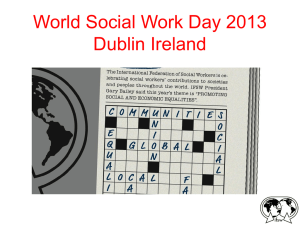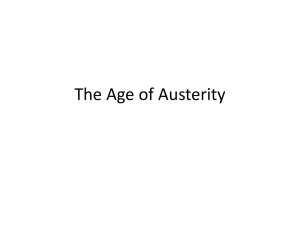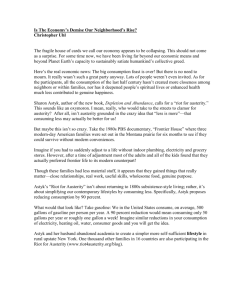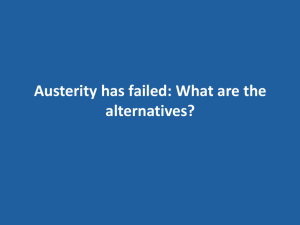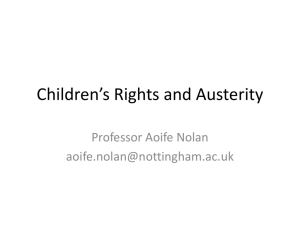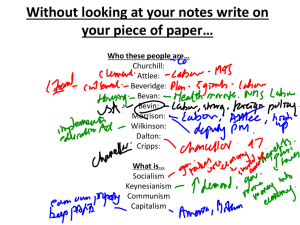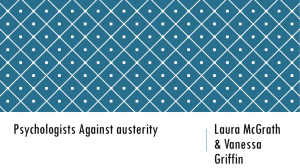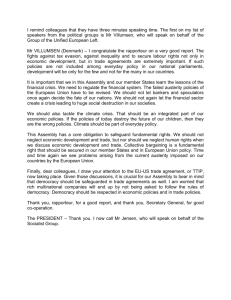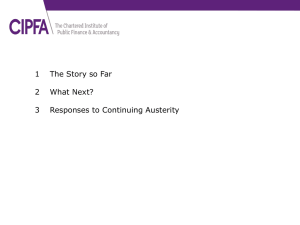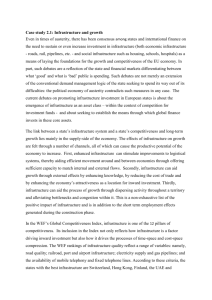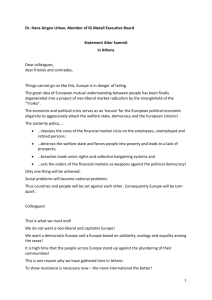Call for Papers ex æquo N.º 32 - To appear November 2015 Topic
advertisement
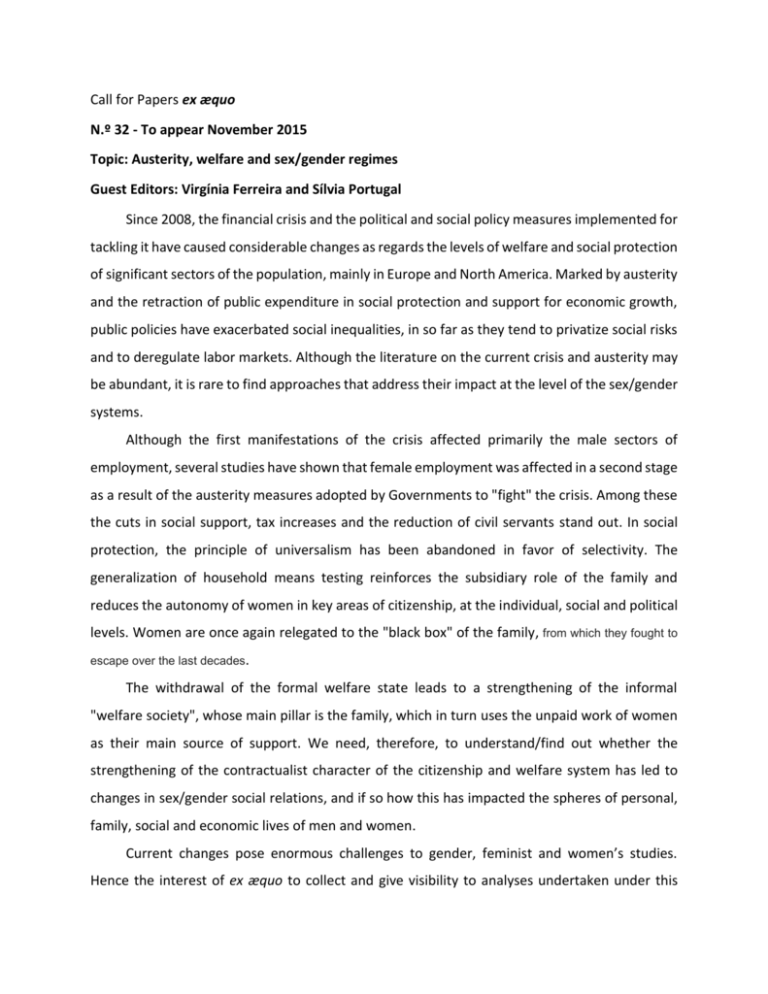
Call for Papers ex æquo N.º 32 - To appear November 2015 Topic: Austerity, welfare and sex/gender regimes Guest Editors: Virgínia Ferreira and Sílvia Portugal Since 2008, the financial crisis and the political and social policy measures implemented for tackling it have caused considerable changes as regards the levels of welfare and social protection of significant sectors of the population, mainly in Europe and North America. Marked by austerity and the retraction of public expenditure in social protection and support for economic growth, public policies have exacerbated social inequalities, in so far as they tend to privatize social risks and to deregulate labor markets. Although the literature on the current crisis and austerity may be abundant, it is rare to find approaches that address their impact at the level of the sex/gender systems. Although the first manifestations of the crisis affected primarily the male sectors of employment, several studies have shown that female employment was affected in a second stage as a result of the austerity measures adopted by Governments to "fight" the crisis. Among these the cuts in social support, tax increases and the reduction of civil servants stand out. In social protection, the principle of universalism has been abandoned in favor of selectivity. The generalization of household means testing reinforces the subsidiary role of the family and reduces the autonomy of women in key areas of citizenship, at the individual, social and political levels. Women are once again relegated to the "black box" of the family, from which they fought to escape over the last decades. The withdrawal of the formal welfare state leads to a strengthening of the informal "welfare society", whose main pillar is the family, which in turn uses the unpaid work of women as their main source of support. We need, therefore, to understand/find out whether the strengthening of the contractualist character of the citizenship and welfare system has led to changes in sex/gender social relations, and if so how this has impacted the spheres of personal, family, social and economic lives of men and women. Current changes pose enormous challenges to gender, feminist and women’s studies. Hence the interest of ex æquo to collect and give visibility to analyses undertaken under this perspective, regardless of the field they come from (sociology, economics, law, political science, psychology, etc.). In this thematic dossier we welcome contributions focusing on ongoing changes in welfare and sex/gender regimes as a result of the austerity policies adopted to cope with the current economic and financial crisis. We call for contributions both on case studies (of regions, countries, economic sectors, etc.), or on international comparative analysis. Although other subjects are not excluded, we suggest the following: 1. Austerity policies and socio-economic, citizenship and sex/gender regimes; 2. Impacts of austerity policies on the patterns of labour market segregation in regions/countries, sectors of employment, paid/unpaid work and social groups (on the basis of sex, ethnicity, sexual orientation, social class, age, etc.); 3. Effects of the crisis and austerity policies on social protection regimes and their implications for sex/gender social relations; 4. Social investment – changes and effects on the work and family life balance; 5. Discourses about the crisis and the austerity policies and their repercussions on the representations of sex/gender identities and relationships; 6. Sex/gender regimes and the limits of contractualism; 7. Debt and management of family budgets; 8. Youth unemployment, precariousness, limitations of access to credit for housing – impacts on personal empowerment projects; 9. The underfunding of research and impact on feminist, gender and women’s studies; 10. Collective action and discourses of resistance to austerity policies and their implications for the gender gap; 11. Exploration of alternative, more egalitarian futures; 12. Reemergence of and resistance to familism. Deadline for submissions: Submissions should be sent until 15 March 2015 to apem1991@gmail.com, addressed to the guest editors Virgínia Ferreira and Sílvia Portugal. The texts should follow the guidelines presented at http://www.apem-estudos.org/en/page/submissao-deartigos. The papers that do not conform to these guidelines in terms of length, format, bibliographic citation and referencing will be immediately excluded and not considered for blind peer reviewing. The authors will be notified of this decision four weeks after the deadline for submissions.
